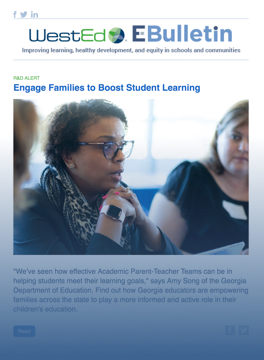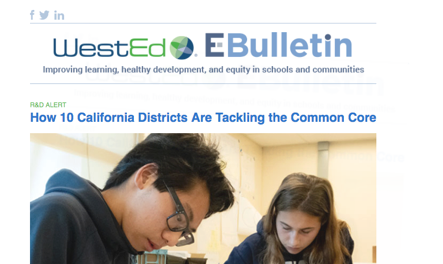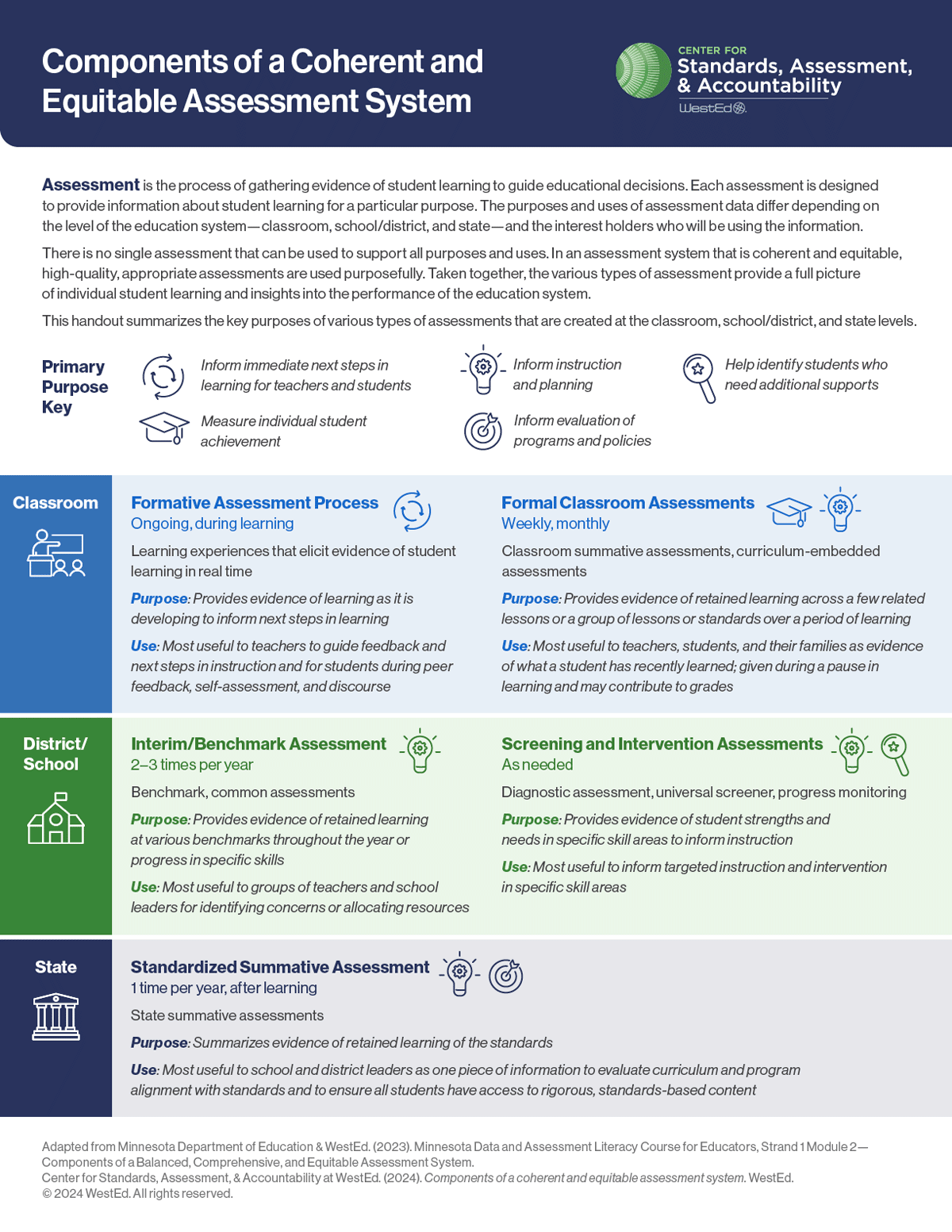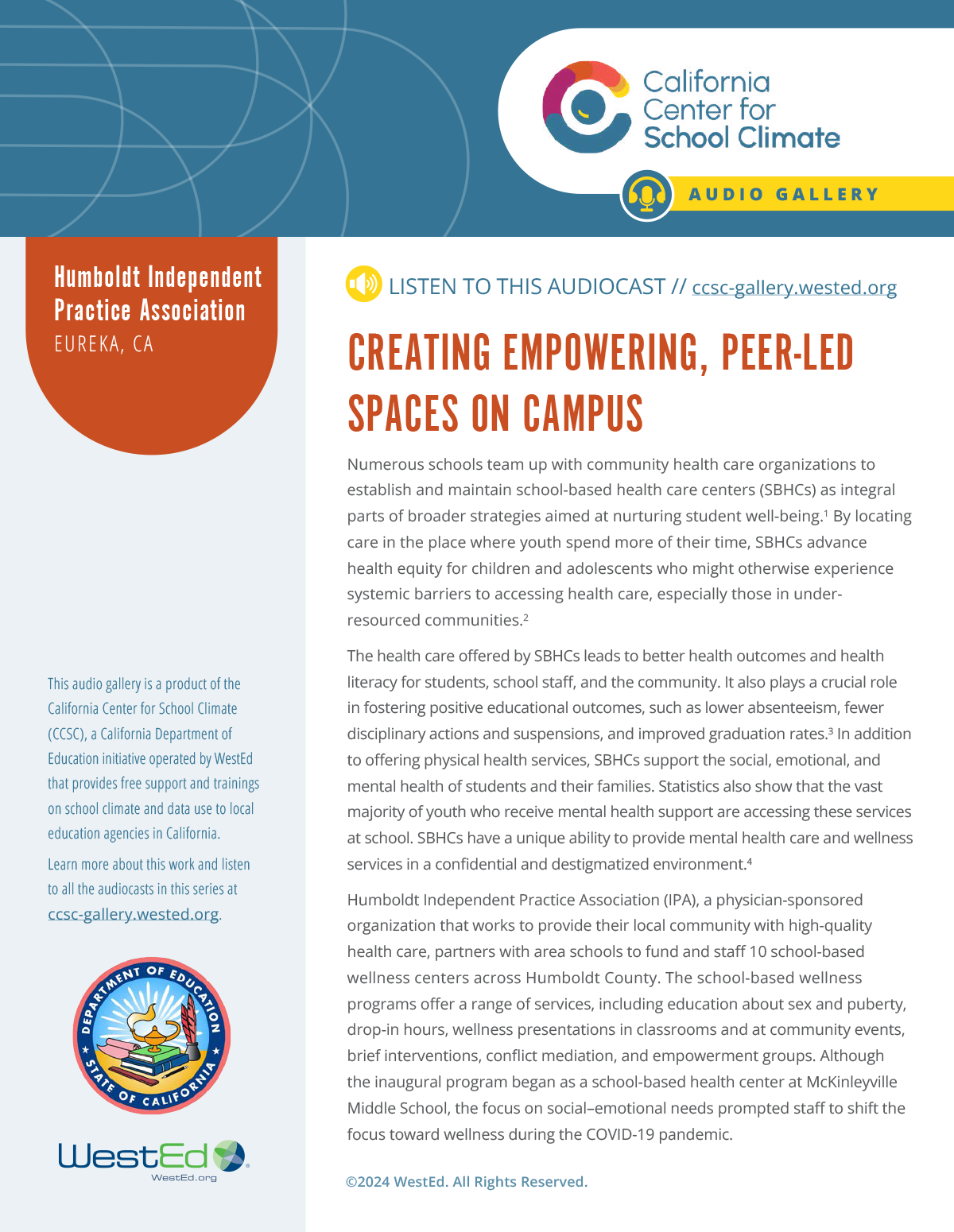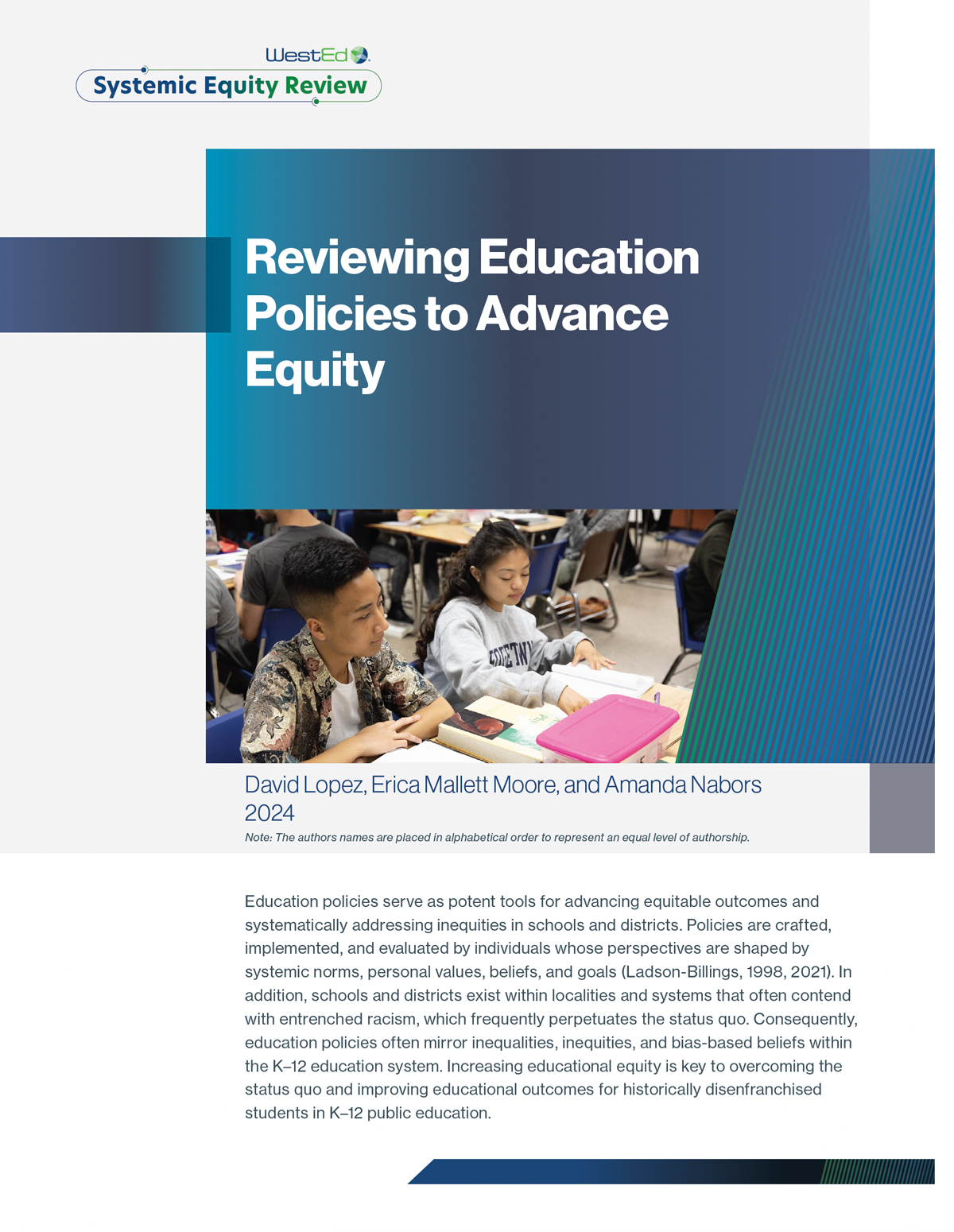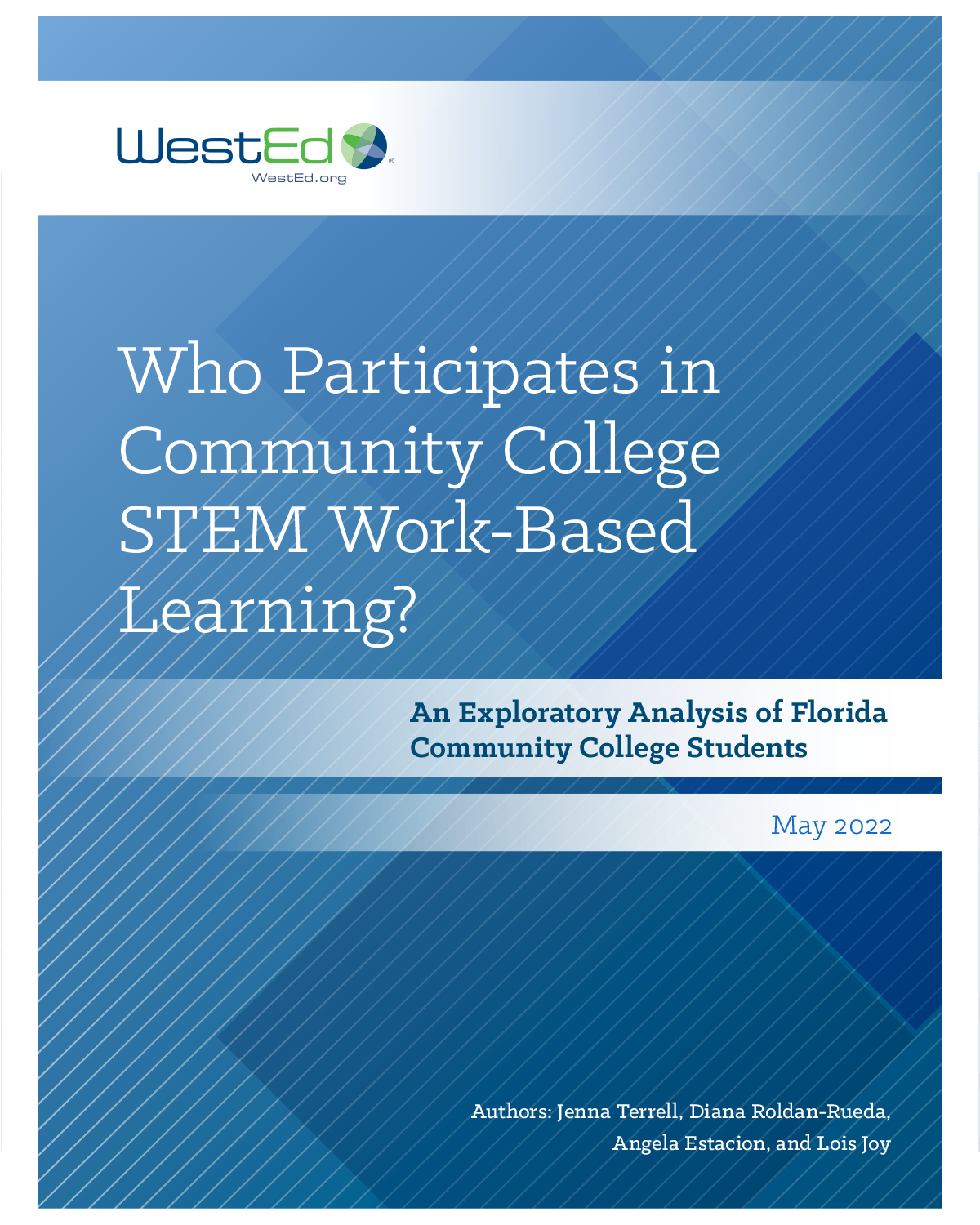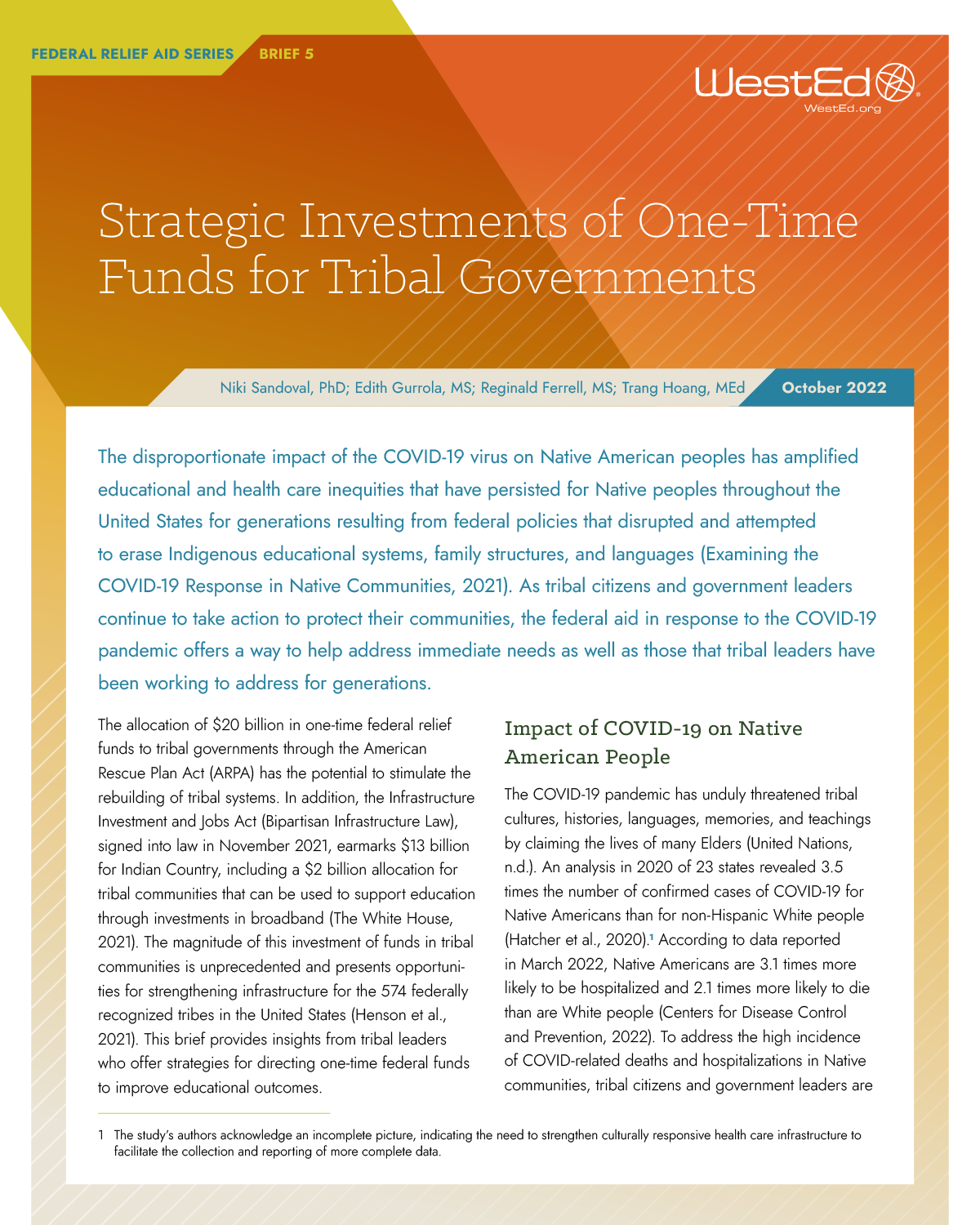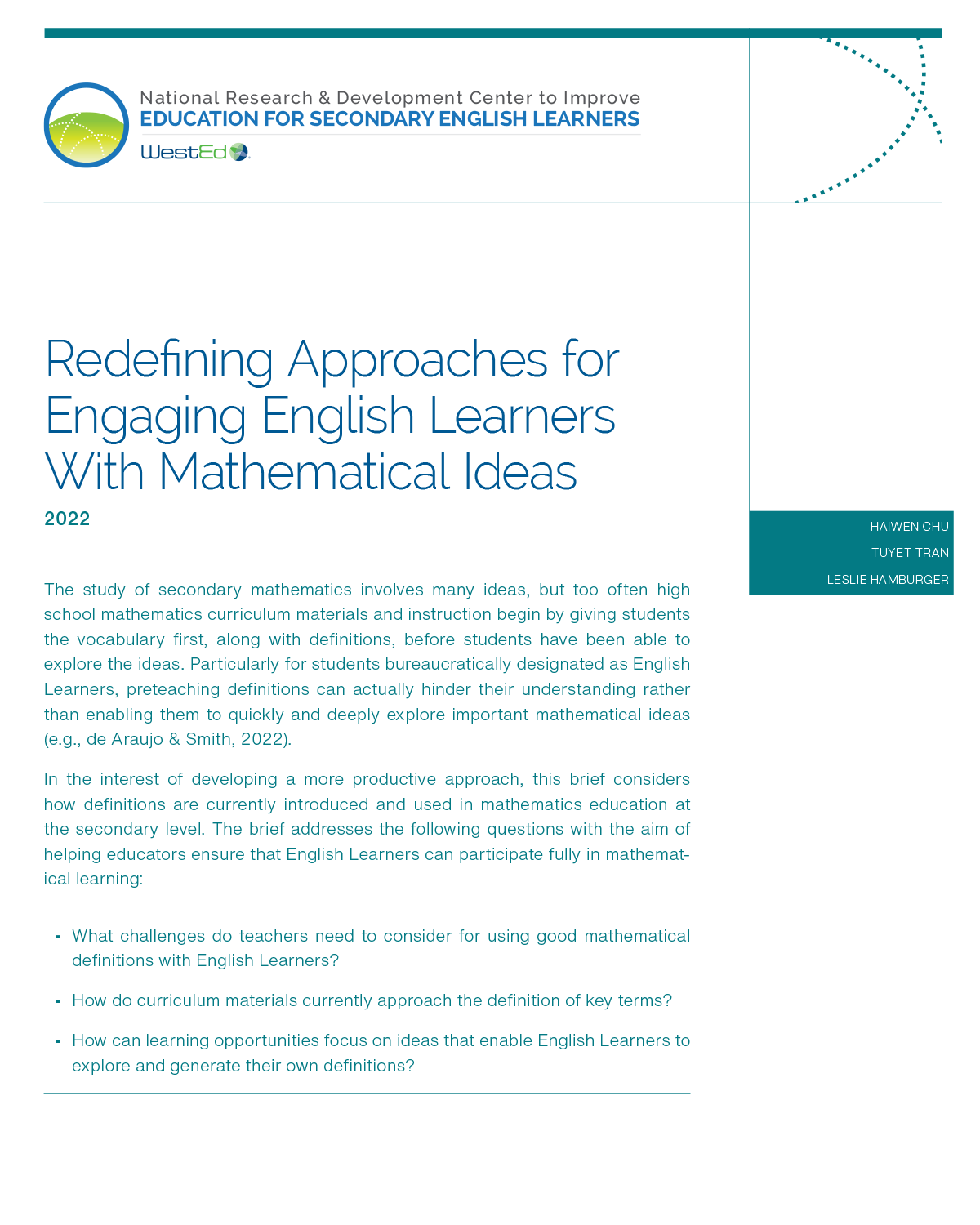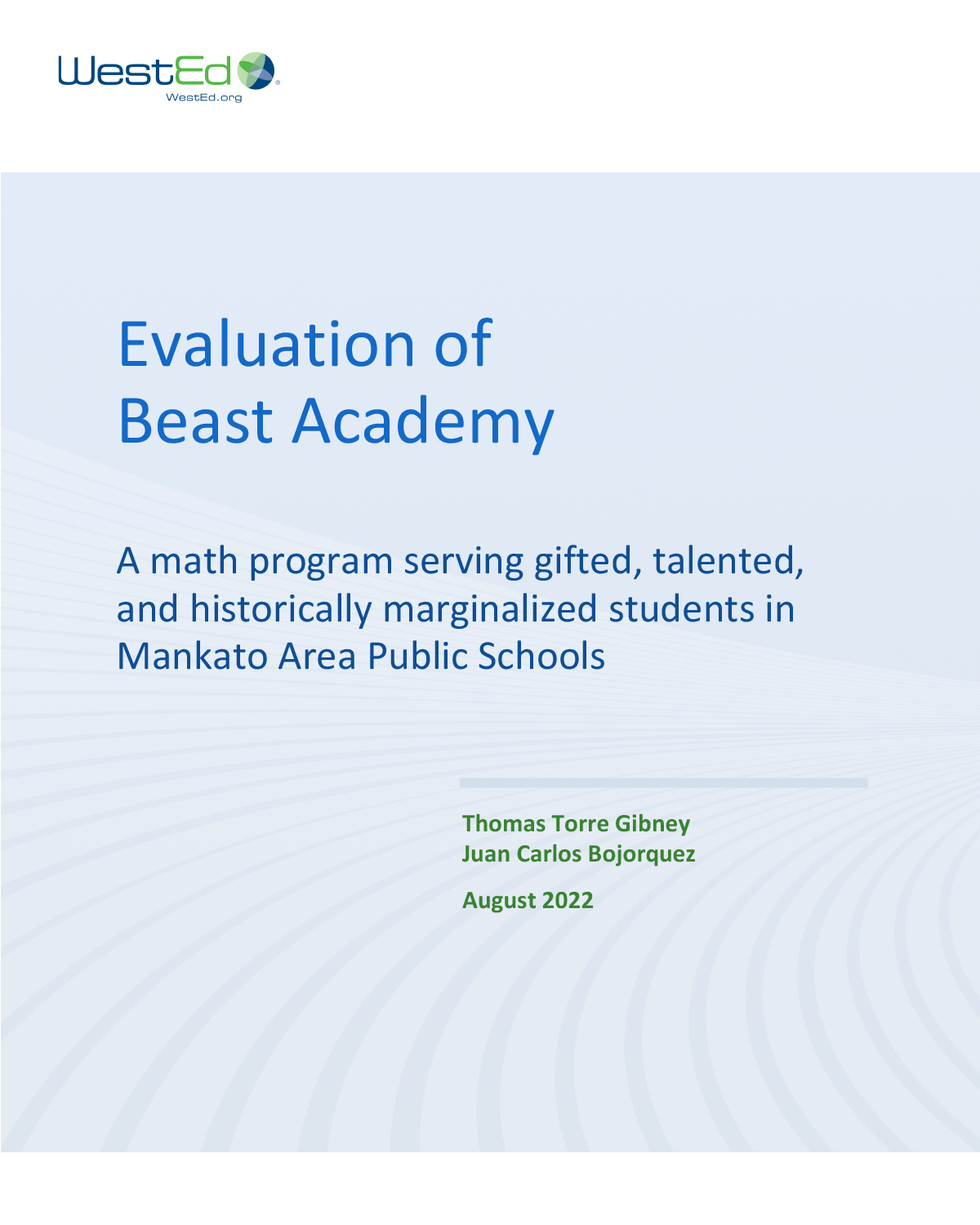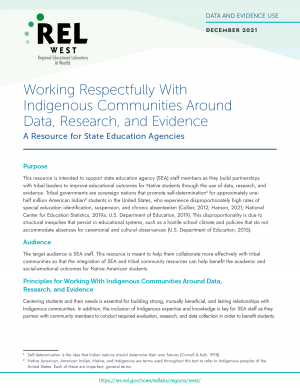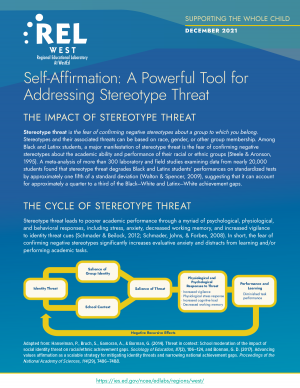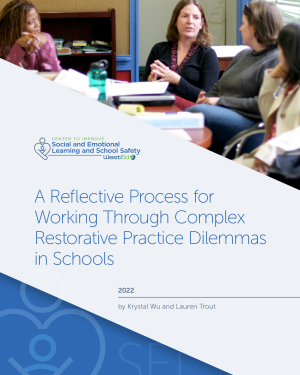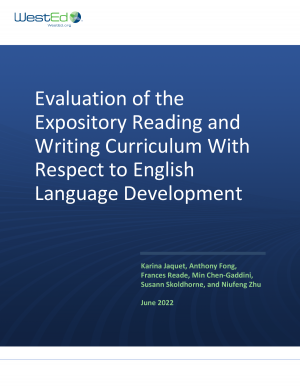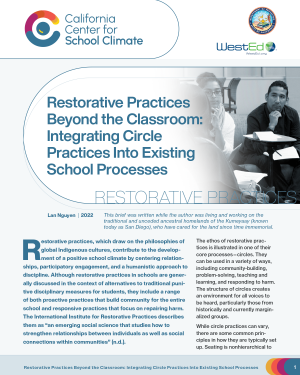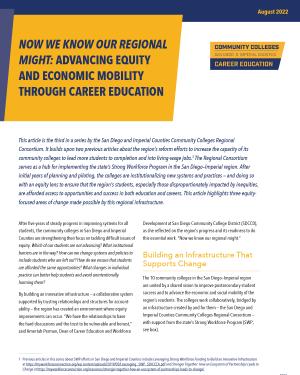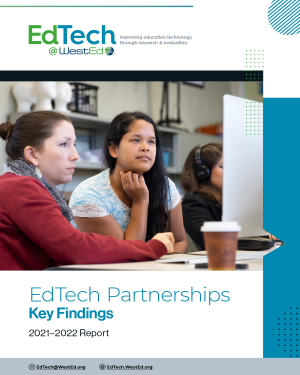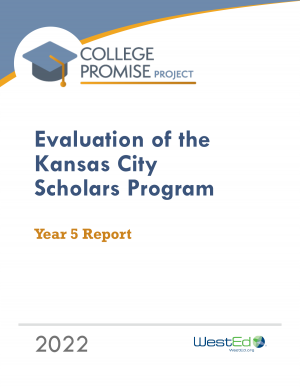Research & Evaluation
-
Who Participates in Community College STEM Work-Based Learning?
This study explores participation in STEM work-based learning in Florida community colleges with a focus on internships and cooperative education courses.
-
Strategic Investments of One-Time Funds for Tribal Governments
This brief provides insights from tribal leaders who offer strategies for directing one-time federal funds to improve educational outcomes and strengthen infrastructure for the 574 federally recognized tribes in the United States.
-
Redefining Approaches for Engaging English Learners With Mathematical Ideas
The brief aims to help educators ensure that English Learners can participate fully in mathematical learning.
-
Evaluation of Beast Academy
This brief reports on an independent evaluation of the efficacy of the Beast Academy program serving gifted, talented, and historically marginalized students in Mankato Area Public Schools, Minnesota.
-
Who is in Charge of English Learner Services? Lessons Learned from a National Co-Teaching and Collaboration Study
Researchers from the National Research & Development Center to Improve Education for Secondary English Learners explain insights from district leaders’ responses in an online survey on the prevalence of co-teaching and collaboration models.
-
Working Respectfully with Indigenous Communities Around Data and Evidence: A Resource for State Education Agencies
This resource is intended to support state education agency (SEA) staff members as they build partnerships with tribal leaders to improve education outcomes for Native students.
-
Self-Affirmation: A Powerful Tool for Addressing Stereotype Threat
This infographic illustrates how self-affirmation, an intervention aimed at reducing stereotype threat, can significantly mitigate its effects on academic outcomes, and generate significant improvements in grade point average (GPA) and test scores.
-
Improving Financial Literacy Education
This brief aims to support state education agencies, local education agencies, and other education leaders interested in implementing financial literacy education, describes relevant considerations, and provides national and regional contexts.
-
A Reflective Process for Working Through Complex Restorative Practice Dilemmas in Schools
This brief offers a reflective process for individuals and teams to use when facing a complex restorative practices dilemma at their school or district.
-
Evaluation of the Expository Reading and Writing Curriculum With Respect to English Language Development
This report describes an evaluation and its findings focused on the implementation and outcomes of Expository Reading and Writing Curriculum modules for English language development instruction (ERWC-ELD) in grades 9-12 in California.
-
Restorative Practices Beyond the Classroom: Integrating Circle Practices Into Existing School Processes
The brief describes the need and rationale for expanding the use of restorative practices in contexts outside of the classroom, including IEP/504 meetings, staff meetings, committee meetings, and online spaces.
-
Now We Know Our Regional Might: Advancing Equity and Economic Mobility through Career Education
This report describes the efforts of the San Diego and Imperial Counties Community Colleges Regional Consortium to improve students’ early community college experiences and lead more students to family-sustaining jobs.
-
EdTech Partnerships: Key Findings 2021–2022 Report
The 2021 SBIR Phase I projects in this document showcase the types of EdTech partnerships that WestEd has established and the impact that each project has on promoting success for every learner.
-
Moving Toward Instructional Coherence: How Four Popular Student-Centered Approaches Deepen Identity, Agency, Equity, and Community
This paper helps educators consider ways to strengthen their practices in simultaneously implementing formative assessment, deeper learning, culturally responsive and sustaining education, and personalized learning.
-
Evaluation of the Kansas City Scholars Program: Year 5 Report
WestEd evaluates the Kansas City Scholars Program in its fifth year of operation. This report explores the characteristics of students participating in the KC Scholars program and to what extent that applicant pools and awardee cohorts have changed over time.
« Previous View More

Stay Connected
Subscribe to the E-Bulletin and receive regular updates on research, free resources, solutions, and job postings from WestEd.
Your download will be available after you subscribe, or choose no thanks.
